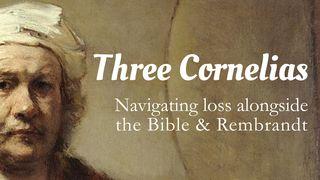InspiredSample

I’ve watched a lot of good people drive their lives, their families, their churches, their communities, even their countries into a lake, shouting “The Bible knows!” all the way down.
The truth is, the Bible isn’t an answer book. It’s not even a book, really. Rather, it’s a diverse library of ancient texts, spanning multiple centuries, genres, and cultures, authored by a host of different authors coming from a variety different perspectives. These texts, like others from antiquity, have undergone edits, revisions, copies, and translations through the years. No one has the originals. Before they were canonized, they circulated as disparate collections of scrolls and codices, and before that, many were passed down as oral traditions. The Scripture Jesus knew and taught looked nothing like the specialty Bibles we sell in our Christian bookstores or even the giant, leather-bound heirlooms we treasure in our churches. Jews were still debating which texts should be canonized in their Scripture a century after Jesus’ death, and Christians were arguing over the shape of their canon well into the Protestant Reformation. (Luther wanted to leave out the book of James, for example, which he called “an epistle of straw.”)
Ask a Catholic monk, an Orthodox priest, an evangelical pastor, and a Reform rabbi how many books are in the Bible and you’ll get four different answers. These various traditions sort their books in different ways too, because Scripture consists of stories, poems, proverbs, letters, laws, genealogies, parables, and a host of other genres that can be difficult to categorize since they emerge from a culture so different from our own.
Because of all this, the Bible makes a lousy owner’s manual. It fails massively at getting to the point. The Bible isn’t some Magic 8 Ball you can consult when deciding whether to take a job or break up with a guy, nor is it a position paper elucidating God’s opinion on various social, theological and political issues. While we may wish for a clear, perspicuous text, that’s not what God gave us. Instead God gave us a cacophony of voices and perspectives, all in conversation with one another, representing the breadth and depth of the human experience in all its complexities and contradictions.
Scripture
About this Plan

Readers are invited to fall in love with Scripture all over again without checking their intellect--or their imaginations--at the door.
More
Related plans

The Chosen + BibleProject | Season 5 Reading Plan

The DEEP Method: How to Discover, Explore, Engage, Practice God's Word

Praying T.A.C.O.S. – a Fresh Way to Talk With God

Cornerstone: Rebuild, Renew, Restore

How We Gave $1 Million (Without Being Rich)

Road to Pentecost: Five Days of Spiritual Renewal

Three Cornelias: Navigating Loss With the Bible & Rembrandt

Psalms Daily Reading Plan

Journey Through Hebrews
